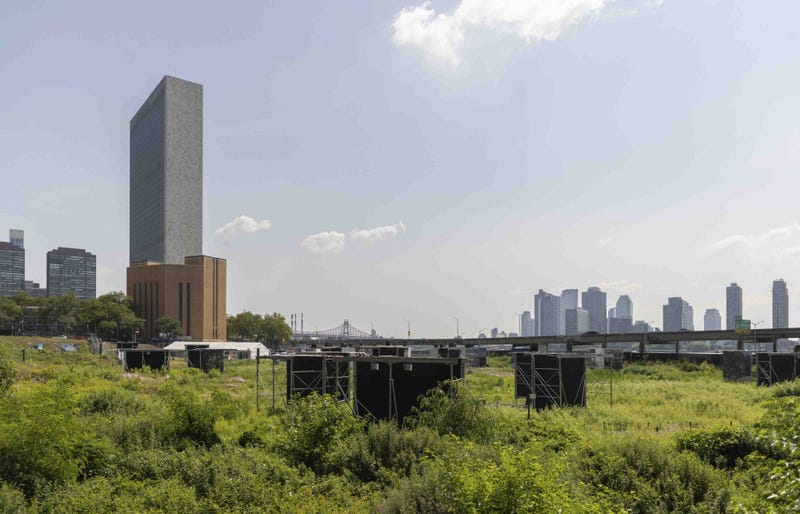
NEW YORK (BLOOMBERG) -- There will be no Manhattan casino.
On Monday, a committee representing city and state elected officials rejected a bid from New York office landlord Stefan Soloviev and Mohegan, who proposed to build an $11.2 billion casino project on Manhattan’s East Side, right near the United Nations’ headquarters.
The decision follows the rejection last week of two other proposals for Manhattan casinos put forward by companies including SL Green Realty Corp., Caesars Entertainment Inc. and Silverstein Properties. With no more Manhattan bids left in the competition, the years-long effort to bring as many as three casinos to downstate New York has failed to place a gambling hall in one of the densest, most affluent parts of the US.
The community-vetting stage of the casino-licensing process will now turn to other locations, including racetracks in Yonkers and Queens that already offer slot machines as well as Coney Island. The biggest winner from the busted Manhattan bids may end up being billionaire Steve Cohen, who is teaming with Hard Rock International Inc. on a proposal to build a casino next to Citi Field, home to his New York Mets.
Those proposals face votes by the end of the month. Projects that win community approval will get another round of scrutiny at the state level. The licenses are expected to be awarded in December.
Manhattan Borough President Mark Levine, New York City Council Member Keith Powers, New York State Senator Kristen Gonzalez and Assembly Member Harvey Epstein said they supported the board’s decision to vote against the Freedom Plaza proposal. The decision drew applause from the attendees of the meeting Monday.
“Our neighbors on the East Side of Manhattan have communicated to us, and to the CAC, through hours of public hearings, significant concerns regarding increased congestion, public safety, and the quality of life concerns this project would introduce into our community,” the lawmakers said in a statement after the vote.
When the state originally proposed licensing casinos in downstate region, it was widely predicted that one of the projects would be located in Manhattan, where the volume of wealthy locals and well-heeled visitors seemed like a potential cash cow for real estate developers, casino operators and tax collectors alike.
The bids met opposition from locals who worried that adding a casino to the urban landscape would exacerbate serious social woes such as gambling addiction and drug-use, or inconvenience New Yorkers by increasing traffic. Originally, at least five Manhattan real estate owners pursued bids, including two — Saks Global and Related Cos. — that abandoned their efforts before they came to a vote.
Soloviev’s pitch was to transform a Manhattan site that the current chairman’s father bought alongside other partners in 2000 from Consolidated Edison Inc. The developers spent $100 million to clean up the land, but it has since languished largely unused.
The developer had mapped out a plan for the casino project that would include 1,080 permanently affordable housing units, as well as more than 1,000 hotel rooms. The companies also pledged 2% of gaming profits to a community reinvestment fund that would support housing, workforce development and youth services.
Soloviev’s project was expected to generate more than $10 billion in economic impact over 30 years, just slightly below the $11.5 billion expected return from Cohen’s project in Queens, according to a report released Friday from Mayor Eric Adams’ office.
— With assistance from Nacha Cattan
More stories like this are available on bloomberg.com.
